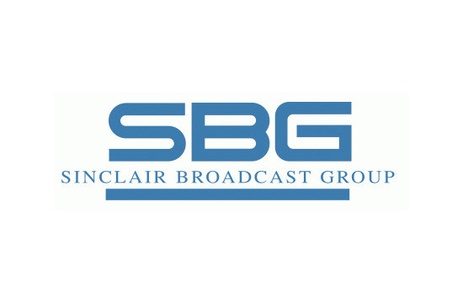Sinclair Proposes Surrendering Three Licenses
The smarter way to stay on top of the multichannel video marketplace. Sign up below.
You are now subscribed
Your newsletter sign-up was successful

According to FCC Commissioners Ajit Pai and Michael O'Rielly, Sinclair has told the FCC it will have to surrender three stations after it could not find buyers in an effort to make the deal more palatable to the FCC. The commission will apparently even get some spectrum back in the deal.
According to a letter filed with the FCC Thursday (May 29), Sinclair has come up with a complicated combination of surrendering licenses to the FCC for cancellation, multicast delivery, and more to insure that its deal to buy the Allbritton stations does not run afoul of the FCC's new focus on sharing arrangements.
Afer the FCC signaled it would take a closer look at sharing arrangements with financial ties, and signaled it was making JSA's of over 15% attributable as ownership interests, Sinclair tried to restructure its deal to buy Allbritton stations by selling Sinclair's My Network TV stations in Charleston, S.C. (WMMP) and Birminghan, Ala. (WABM), and Harrisburg, Pa. (WHP) to new buyers.
It had planned to spin them off to a Deerfield party or Howard Stirk Holdings, and provide services to them through sharing arrangements. Sinclair said it would also discontinue its shared services agreement with WTAT Charleston and transfer the rights to provide services to WLYH Harrisburg under an existing LMA to the new owner of WHP.
Those three markets are where Sinclair is buying Allbritton ABC affiliates.
Now it says it could not find a buyer for the Alabama and Charleston stations, and will consider selling Allbritton's WHTM Harrisburg instead of WHP.
In a letter to the FCC, it outlined its plans for various moves so that no joint sales agreements or sharing agreements or financial ties would be involved in its purchase of the Allbritton stations, which has a closing deadline of July or either party can terminate the deal.
The smarter way to stay on top of the multichannel video marketplace. Sign up below.
Those plans include surrendering the licenses of three stations. The stations whose licenses Sinclair plans to surrender, subject to FCC approval, are WCFT and WJSU, both Alabama, and WCIV Charleston, as part of a complicated, many-domino-moving plan that would include taking programming from those stations and delivering it on the multicast channels of WABM and WMMP, respectively.
Pai and O'Rielly were against tightening the JSA rules and increased scrutiny of sharing agreements.
"When the Commission voted to restrict television broadcasters’ use of joint sales agreements (JSAs), we warned that this decision would lead to 'less ownership diversity' and 'more television stations going out of business.' Unfortunately, just two months later, this is coming to pass," they wrote in a statement.
"Today, Sinclair Television Group announced its intent to surrender to the Commission for cancellation three television station licenses in the Charleston, South Carolina and Birmingham, Alabama markets. Sinclair reported that it was unable to find a viable buyer for any of these stations. As a result, it appears that these three stations will soon be going dark.
"It didn’t have to be this way. Prior to the Commission’s decision to restrict the use of JSAs, Sinclair had a viable buyer for stations in Charleston and Birmingham: Howard Stirk Holdings (HSH), an African-American owned broadcaster. That deal, however, fell through because of the Commission’s decision to stop Sinclair from entering into JSAs with HSH.
"So, what has the Commission’s decision wrought? Instead of increasing the number of African-American-owned television stations, we are driving stations off the air. This will mean job losses, less service to South Carolinians and Alabamians, and less ownership diversity. We do not see how such an outcome possibly serves the public interest, and we hope that the Commission will take action immediately to correct its misguided restrictions on JSAs."
Lauren Wilson, policy counsel for consolidation critic Free Press, saw the Sinclair move as a victory.
"We commend the FCC for closing loopholes in its ownership policies, clearly signaling to Sinclair that the agency would no longer tolerate its dodging of the rules. Apparently, the message was received, and that's good news.
"In a statement on Thursday, FCC Commissioners Pai and O'Reilly tried to paint these events as a blow to ownership diversity. However, the Sinclair shell company -- Armstrong Williams' Howard Stirk Holdings -- was slated to become a licensee in name only, and not a truly independent owner. Sinclair's overarching goal as always was to prevent competition and increase its stranglehold on media markets across the country, not to find actual buyers for and users of these public airwaves in the affected communities.
"HSH itself was never a viable buyer, but a shell corporation through which Sinclair could expand its influence over local broadcasting. Sinclair's change of heart signals nothing more than its eagerness to close its deal with Allbritton. It also shows that Sinclair can make the same programming available by using digital multicasting technology to air more than one network on its existing stations without the shell company ruse."
To check out exactly what Sinclair is proposing, and it is complicated, click on the PDF below.
Contributing editor John Eggerton has been an editor and/or writer on media regulation, legislation and policy for over four decades, including covering the FCC, FTC, Congress, the major media trade associations, and the federal courts. In addition to Multichannel News and Broadcasting + Cable, his work has appeared in Radio World, TV Technology, TV Fax, This Week in Consumer Electronics, Variety and the Encyclopedia Britannica.

